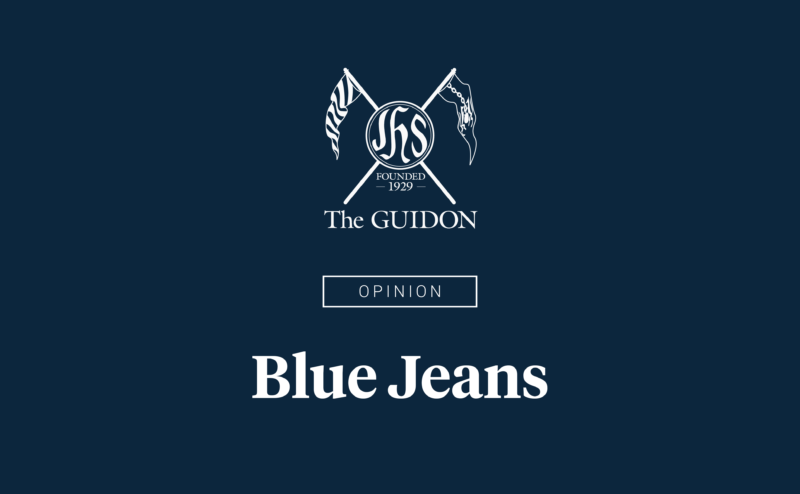LAST SEMESTER, concerned members of the Ateneo community questioned the Sanggunian over “odd decisions” on its budget allocations. An anonymous online post stated that for shirts and lanyards, the student government allocated Php 49,500—a slightly larger amount than the Scholars’ Sector’s overall semestral funding of Php 45,850.
While the amounts were previously confirmed by Scholars Sector Representative Karen Perez as accurate, pertinent documents containing the proposed budget have not been publicly accessible. This issue intensifies student discussions on the Sanggunian’s seeming passiveness in democratizing student representation.
Last November, a hacking incident also occurred on the previous Facebook Page of the Central Assembly (CA), the Sanggunian unit primarily responsible for fiscal deliberations. However, initiatives have yet to be made with regard to making the first semester budgets available on the new Facebook Page.
Private or public?
Coordinating with the Sanggunian Department of Budget and Management (DBM), the CA conducts budget hearings every semester to discuss the proposals of the student government’s various units, including the four School Sanggunians and four sectors.
Once these proposals get the CA’s nod, they will be submitted to the Sanggunian Office of the President, its formator Neil Reyes, and Office of Student Activities Director Ralph Quiblat for further approval.
Quite notably, however, Sanggunian President Bernice Mendoza vetoed CA’s initial budget proposal last September for not meeting the minimum amount for the School Sanggunians’ Resource Partnership Programs, as stipulated in its Code of Financial Procedures.
Clarifying the budget issue last semester, Perez points out that the Php 45,850-budget was proposed by the Sectoral Board themselves. In a memorandum, she explained that the low funding does not indicate that the Sanggunian has “low regard for the welfare of the scholar community.”
With the increased demand for the Financial Subsidies Program and the 14th Scholars’ Week project slated to happen this semester, Perez bares that the Sectoral Board proposed a budget of Php 109,000 during the Second Semester Budget Hearing—a significant jump from the previous semester.
“The sector also knows [that] we’re very intentional when it comes to proposing the budget and not just proposing for the sake of it,” Perez says.
Genuine representation
The Sanggunian makes these budget procedures public by establishing systems ensuring budget transparency, which used to include a live budget tracker website. However, the website has been rendered inoperable as a whole since 2021.
Sanggunian Vice President Czarina de Marcaida explains that the project ultimately ended during the term of former Sanggunian President JB Bejarin, emphasizing that internal processes adapt over time to fit the situations of the student government.
While the live budget tracker is no longer accessible, DBM Co-Chairperson Jacob Arabes shares that they are currently implementing a Transactions Central Tracker, which aims to reflect the status of financial processes filed by unit heads. Due to data privacy concerns, the tracker cannot be made open for public perusal, but it can be requested.
Alongside this initiative, the Sanggunian presents its budget proposals and hearings through livestreams on its main page. Expenditures of each unit and sector were also discussed during the State of the Sanggunian Address.
Despite these measures, there is still a lack of immediacy in the posting of financial documents, especially in the absence of the latest budget reports on the Sanggunian website. As of writing, the latest proposal posted is still from the first semester of AY 2022–2023.
Amid these formal communication platforms, students’ preference for informal channels may indicate probable issues in the student government’s public communication strategies and visibility.
Such institutional phenomenon may be linked to a deeper analysis of political attitudes. From a public management perspective, Political Science Professor Anne Lan Candelaria, PhD cites two possible reasons for the disconnect between leaders and the constituents: gaps in organizational development and public distrust in the government.
Organizational development issues may refer to inefficiencies brought about by bureaucratic red tape or major structural changes. Such issues are solvable, said Candelaria, but the same cannot be said when the relationship between the leaders and the governed is built on distrust. Constituents may also hesitate to put their confidence in political institutions when leaders repeatedly fall short of fulfilling their promises.
Candelaria explains that the predicaments encountered by the Sanggunian point to its internal system issues, but these can be remedied by capacitating leaders to be well-versed in the organizational development component of student leadership.
Following this, Arabes shares that during the transition period, incoming school and sector representatives are individually oriented and trained by their predecessors in preparation for the budget hearings. This practice equips sectors with the necessary skills when participating in the budget process.
Pursuing transparency
With the recent semestral budget hearings, Candelaria expounds on the need for students to be made aware of the budgeting framework. Moreover, she emphasizes that creating avenues for greater stakeholder representation in policy-making is futile if students themselves do not engage.
“How students relate to their student government is actually a reflection of how robust [their] participation is during elections,” Candelaria says.
In recent years, a decline has been observed in the Sanggunian General Elections voter turnout, which stood only at 18.84% and 14.08% in 2022 and 2023, respectively.
“Transparency and accountability is a habit… the only way really for Sanggu to be on their toes is for [the student body] to really engage [with] them on a regular basis,” Candelaria declares.
Following this, de Marcaida encourages students to make use of Sanggunian’s direct channels, like its Sabihin sa Sanggu initiative rather than anonymous platforms. With this call, Arabes also guarantees that the DBM maintains open communication lines for concerns regarding the organization’s financial transactions.
While the student government moves toward deeper initiatives of connecting with the Ateneo community, active efforts to resolve the problem of non-participation within the student body are essential, as transparency is ultimately a two-way dynamic.







